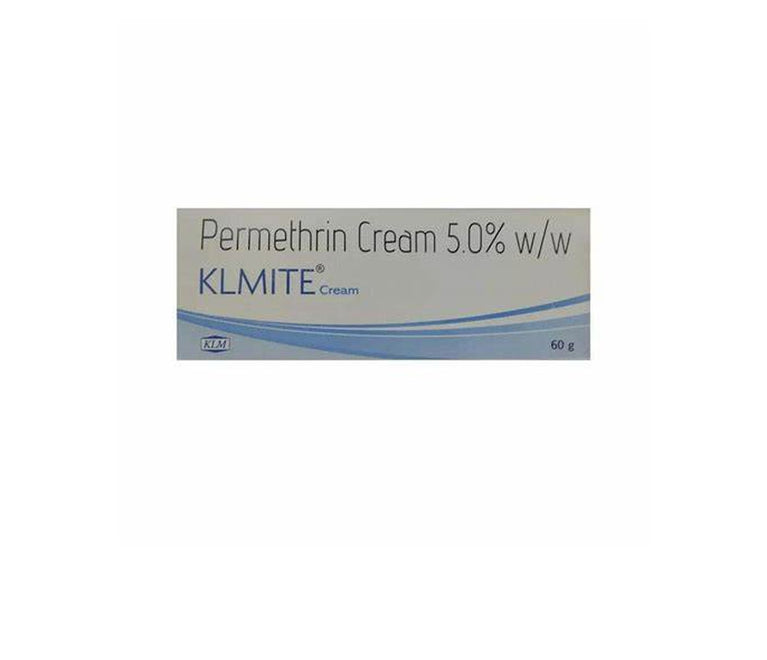Use DERMA120 to get ₹120 off on Order ₹2999+
Klmite Cream
- Regular price
- ₹ 111.00
- Sale price
- ₹ 111.00
- Regular price
-
₹ 124.00 - Unit price
- / per
Offers
-
-
Use
DERMA50to get ₹50 off on Order ₹1999+
Product Highlights:
- Treats fungal infections
- Eases itching and redness
- Guards against further irritation
Share
Couldn't load pickup availability
Shipping & Returns
- Free Shipping on Orders Above ₹999
- 7-Day Hassle-Free Returns
- Real-Time Tracking Updates
- Secure & Eco-Friendly Packaging
- Cash on Delivery (COD) Available

Product Description:
Klmite Cream is an antiparasitic medication. It treats scabies, where tiny insects infest and irritate your skin. This medicine works by killing the insects (mites) and their eggs.
Key Ingredients:
- PERMETHRIN-5%W/W
Composition:
PERMETHRIN-5%W/W
How to Use:
Always use KLMITE CREAM as directed by your physician. It is for external use only. The medicine should be applied to all the affected areas.
Safety/Storage Information:
Store in a cool and dry place below 30°C. Do not freeze. Keep the medicine out of the reach of children.
Country Of Origin:
India
Frequently Asked Questions (FAQs):
Klmite Cream is a topical medication used for the treatment of scabies and lice infestations. It contains Permethrin, a synthetic insecticide that works by killing the mites that cause scabies and the lice that infest the scalp and body. Klmite Cream is commonly used to relieve itching, reduce the spread of infection, and eliminate the parasites responsible for these skin conditions.
Klmite Cream works by disrupting the nervous system of the scabies mites and lice. Permethrin, the active ingredient, interferes with the mites' ability to move and feed, ultimately killing them. It also helps to alleviate the intense itching and irritation caused by these infestations.
You should begin to notice improvement in your symptoms within 1-2 days, including reduced itching and irritation. It may take several days for the rash or affected areas to fully heal. If symptoms persist or worsen after treatment, consult your healthcare provider.
Klmite Cream is classified as low risk during pregnancy, but it should only be used during pregnancy if absolutely necessary. Consult your doctor before using Klmite Cream if you are pregnant or breastfeeding, especially if you have any underlying conditions or concerns.
Yes, Klmite Cream can be used in children aged 2 months and older to treat scabies or lice. However, the dosage and application instructions may differ based on the child’s age and weight. Consult your pediatrician for specific guidance on using Klmite Cream in children.
Klmite Cream is generally not recommended for use on the face, especially near the eyes, unless directed by a healthcare provider. However, if you have scabies on your face, your doctor may advise how to safely apply the cream. Avoid the eyes, mouth, and mucous membranes.
Klmite Cream can generally be used with other topical medications, but you should consult your healthcare provider or pharmacist if you are using other skin treatments (such as corticosteroids or other insecticides) to ensure they do not interact.
It really helps with minor injuries and skin irritation. Will be repurchasing!
I was surprised at how well this cream worked. It’s gentle on the skin but powerful against infections.
Highly recommend this cream for treating skin irritation and redness
Very effective; I noticed improvements in just a few days.
Outstanding customer service. They really care about their customers.

